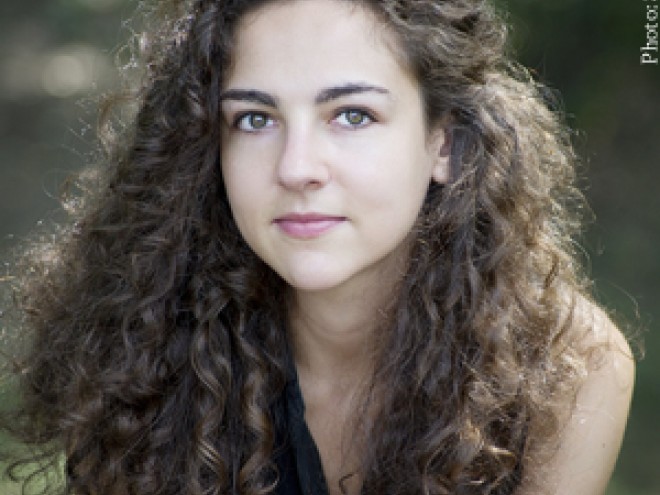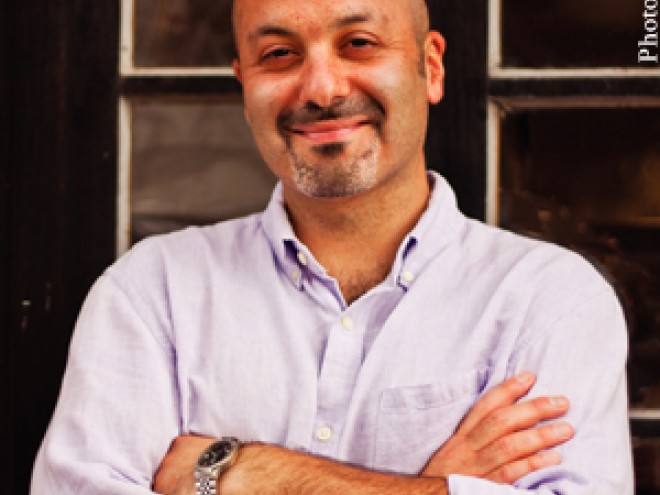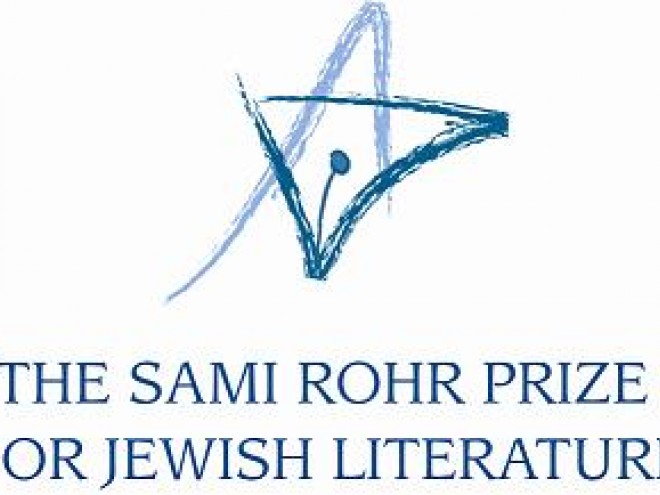Posted by Naomi Firestone-Teeter
 The announcement of the year’s Sami Rohr Prize finalists is always one of the absolute highlights of my year. Each year, the books reflect a wide-range of voices exploring themes of significance to Jewish life — past and present. The prize highlights some of the key authors to keep an eye on and offers a platform for them to further contribute to both the literary community, generally, and the Jewish community, specifically.
The announcement of the year’s Sami Rohr Prize finalists is always one of the absolute highlights of my year. Each year, the books reflect a wide-range of voices exploring themes of significance to Jewish life — past and present. The prize highlights some of the key authors to keep an eye on and offers a platform for them to further contribute to both the literary community, generally, and the Jewish community, specifically.
The importance of naming five finalists, rather than just one winner, each year is in its ability to reflect a spectrum of ideas: each voice is important on its own, but taken as a whole, it’s the range of voices that provoke some of the most enriching conversations: conversations that are both thoughtful and nuanced and take into consideration Jewish perspectives that stretch across time, place, and circumstance.
And, as we’ve done in years past, in the weeks leading up to the announcement of the winning author, we highlight here on the JBC blog each of the five finalists. Today we hear from Ayelet Tsabari, whose collection of short stories, The Best Place on Earth, made this year’s list.
What are some of the most challenging things about writing fiction?
I find all writing challenging. Being a new(ish) mom, my biggest challenge is finding the time to do it.
What or who has been your inspiration for writing fiction?
Reading, traveling, and my father, a closet poet who inspired my love of books and motivated me to write as a child.
Who is your intended audience?
I try not to think about audience when I write. I worry it will ruin the magic. But if I had to choose, I’d say people who love books as much as I do.
Are you working on anything new right now?
I’m finishing up a memoir in essays about growing up Mizrahi in Israel, and about leaving, traveling, and returning. I’m also starting a novel about the Yemeni Jewish community set during Israel’s early days.
What are you reading now?
Like most writers I know, I’m reading several books at once. I’m finishing up Drinking Coffee Elsewhere by ZZ Packer, and starting All My Puny Sorrows by Miriam Towes, Between by Angie Abdou, and The Best American Short Stories 2014. I’ve also been reading a lot of Dr. Seuss for my daughter, which I wasn’t familiar with from my own childhood. It’s pretty great.
Top 5 favorite books
I’m going to answer quickly so I don’t have a chance to rethink it. You would likely get an entirely different answer tomorrow.
- One Hundred Years of Solitude, Gabriel García Márquez
- The God of Small Things, Arundhati Roy
- The Kites, Romain Gary
- La Storia, Elsa Morante
- The Interpreter of Maladies, Jhumpa Lahiri
When did you decide to be a writer? Where were you?
I didn’t. I like to say that it came built in. I started telling stories to neighbors and cousins as early as four, moved on to comic strips at five, and once I learned the alphabet I started writing poems and stories and sent them out to Israeli children’s magazines, like Haaretz Shelanu. I published my first poem at nine.
What is the mountaintop for you — how do you define success?
Having readers emotionally connect, engage and respond to my work. When I was growing up and dreamt of becoming an author, that’s what I wished for: I wanted to move and touch people, to give readers that magical feeling books instilled in me. On a practical note, being able to afford writing full time, and finding a way to balance it with the demands of motherhood would be a triumph. Oh, and I’d love to have a beautiful writing shed in my backyard I will call Tel Aviv (after George Bernard Shaw’s London).
How do you write — what is your private modus operandi? What talismans, rituals, props do you use to assist you?
I can write anywhere. I’ve written on my phone while pushing a stroller, scribbled scenes on coffee shop napkins, and I once wrote an entire story in the bath on a tiny notepad. But I write best at home, in my office, and I love having my stuff around. A good chair and an alternative standing option. A cork board with hippie inspirational quotes and pictures of loved ones. Comfortable writing pants (which some foolish people may refer to as yoga pants.) A large wall mirror I can use to play out my characters’ physical gestures to ensure they’re realistic. And a window. I know writers who prefer to stare a blank wall to minimize distractions. That’s not me. I love catching glimpses of life outside my little room. It inspires me.
What do you want readers to get out of your book?
To be moved. To feel deeply. To get to know a side of Israel they don’t see in the news, and a facet of Jewish experience they may not have read much about.
Ayelet Tsabari is an Israeli of Yemeni descent; she grew up in Israel, served in the army and moved to Canada in 1998. She is a two-time winner of the EVENT Creative Non-Fiction Contest and has been published in literary magazines such as PRISM, Grain and Room. Her unpublished non-fiction manuscript was shortlisted for the First Book Competition sponsored by Anvil Press and SFU’s Writer’s Studio. She is a graduate of the MFA in Creative Writing Program at the University of Guelph and lives in Toronto, where she is at work on a novel. Learn more at www.ayelettsabari.com or follow her on Twitter @AyeletTsabari.
Related Content:
- The 2015 Sami Rohr Prize Finalists
- Read more interviews with Sami Rohr Prize winners and finalists
- Reading List: Short Stories
Originally from Lancaster, Pennsylvania, Naomi is the CEO of Jewish Book Council. She graduated from Emory University with degrees in English and Art History and, in addition, studied at University College London. Prior to her role as executive director and now CEO, Naomi served as the founding editor of the JBC website and blog and managing editor of Jewish Book World. In addition, she has overseen JBC’s digital initiatives, and also developed the JBC’s Visiting Scribe series and Unpacking the Book: Jewish Writers in Conversation.


